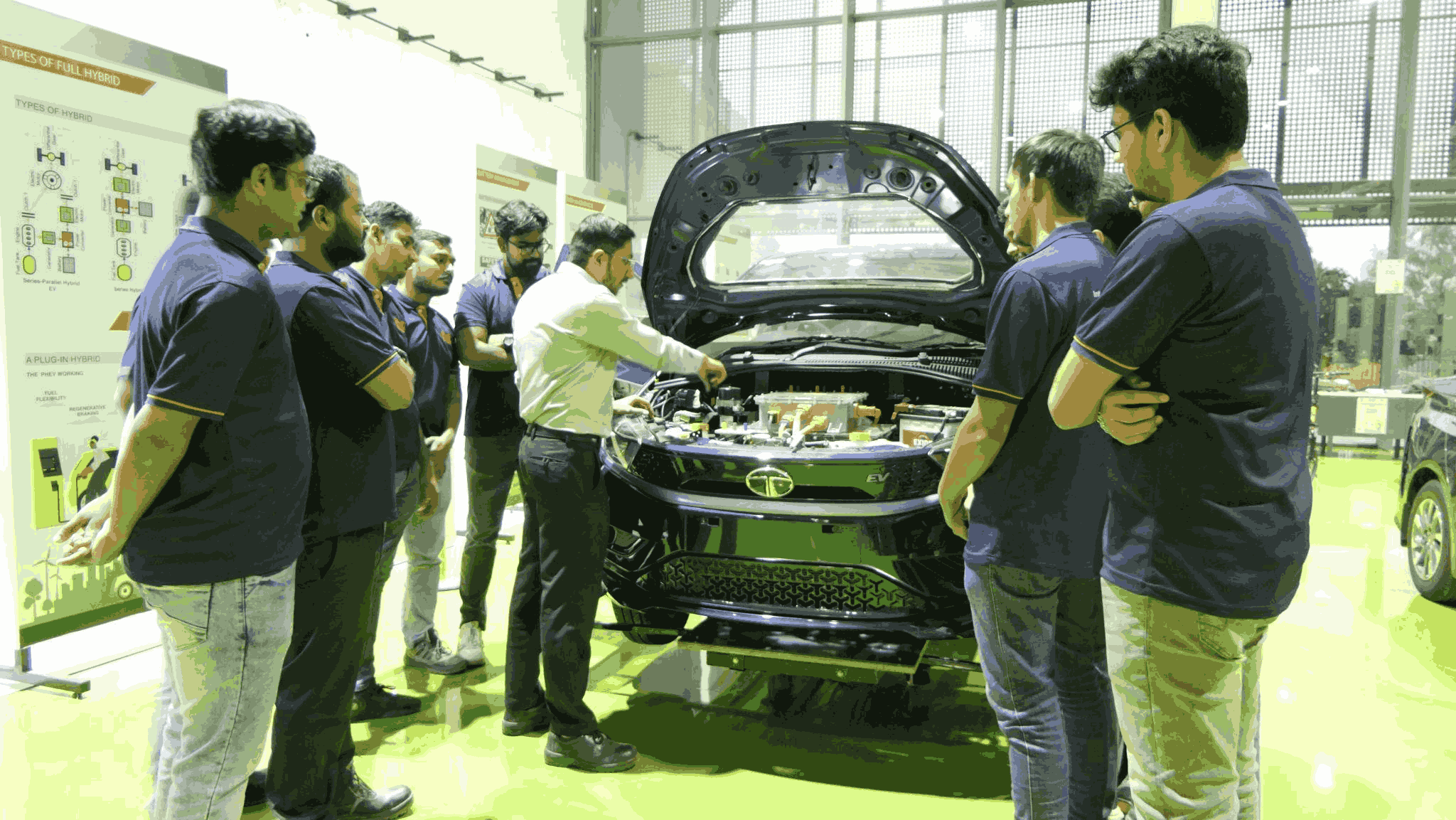As we advance into the era of electric vehicles (EVs) in automobile engineering, the fusion of electrification and autonomous driving technologies is reshaping the automotive scenario. This transformation is not only enhancing driving experiences but also paving the way for safer and more efficient transportation.
The Rise of Autonomous Electric Vehicles
The global autonomous vehicles market has witnessed remarkable growth, with revenues increasing from $147.5 billion in 2022 to $208.0 billion in 2023. Projections indicate this upward trend will continue, reaching $282.2 billion in 2024 and an impressive $428.3 billion by 2025.
This surge is driven by advancements in artificial intelligence (AI) and machine learning, enabling vehicles to navigate complex environments with minimal human intervention. Currently, 25% of all vehicles produced globally integrate some form of AI-driven automation, showcasing a rapid shift towards intelligent systems. By the time you’re reading it and you’re interested in getting started with your career in EVs, check out iACE’s EV technology courses.
Key Autonomous Features in Electric Vehicles
1. Advanced Driver Assistance Systems (ADAS):
- Collision Avoidance: Using sensors and cameras, ADAS can detect potential obstacles and apply brakes automatically to prevent accidents.
- Lane Keeping Assist: Monitors lane markings and gently steers the vehicle back if it begins to drift, ensuring safer lane discipline.
2. Self-Parking:
- Autonomous parking systems allow vehicles to park themselves in tight spots, reducing the hassle for drivers and optimizing space usage.
3. Traffic Jam Assist:
- In congested traffic conditions, this feature enables the vehicle to manage acceleration, braking, and steering, alleviating driver stress during commutes.
4. Autonomous Navigation:
- Leveraging AI and real-time data, EVs can plan routes, interpret traffic signals, and make decisions, bringing us closer to fully self-driving cars.
Benefits of Integrating Autonomous Features in EVs
- Enhanced Safety: AI-driven safety systems, like ADAS, have been instrumental in reducing road accidents.
- Improved Efficiency: Autonomous features optimize driving patterns, leading to better energy consumption and extended battery life for EVs.
- User Convenience: Features such as self-parking and traffic jams assist in enhancing the overall driving experience, making daily commutes less taxing.
Challenges and the Road Ahead
While the integration of autonomous features in EVs offers numerous benefits, it also presents challenges:
- Technical Complexities: Developing reliable autonomous systems that can handle diverse real-world scenarios requires sophisticated algorithms and extensive testing.
- Regulatory Hurdles: Ensuring these technologies meet safety standards involves navigating a complex regulatory landscape.
- Public Acceptance: Building trust in autonomous technology is crucial, as widespread adoption depends on user confidence in these systems.
Empowering the Future with Education
As the automotive industry evolves, there is a growing demand for professionals skilled in both EV technology and autonomous systems. Institutions like the International Automobile Centre of Excellence (iACE) are at the forefront of this educational revolution.
iACE offers a range of programs designed to equip individuals with the necessary skills:
- Automotive Training Institute: Provides hands-on training with modern tools, ensuring students are industry-ready.
- Automobile Engineering: Focuses on the fundamentals and advanced concepts of vehicle design and mechanics.
- Automotive Certification Courses: Short-term courses aimed at upskilling professionals in the latest automotive technologies.
- EV Technology Courses: Specialized programs that are completely based on electric vehicle systems, battery technology, and sustainable practices.
By enrolling in these programs, you can position yourself as the latest in automotive innovation, contributing to a future where autonomous electric vehicles are the norm.
All in all, the integration of autonomous features in electric vehicles is revolutionizing transportation. As technology continues to advance, staying informed and acquiring relevant skills through automotive training institutes like iACE will be pivotal in navigating and shaping this future of mobility.


